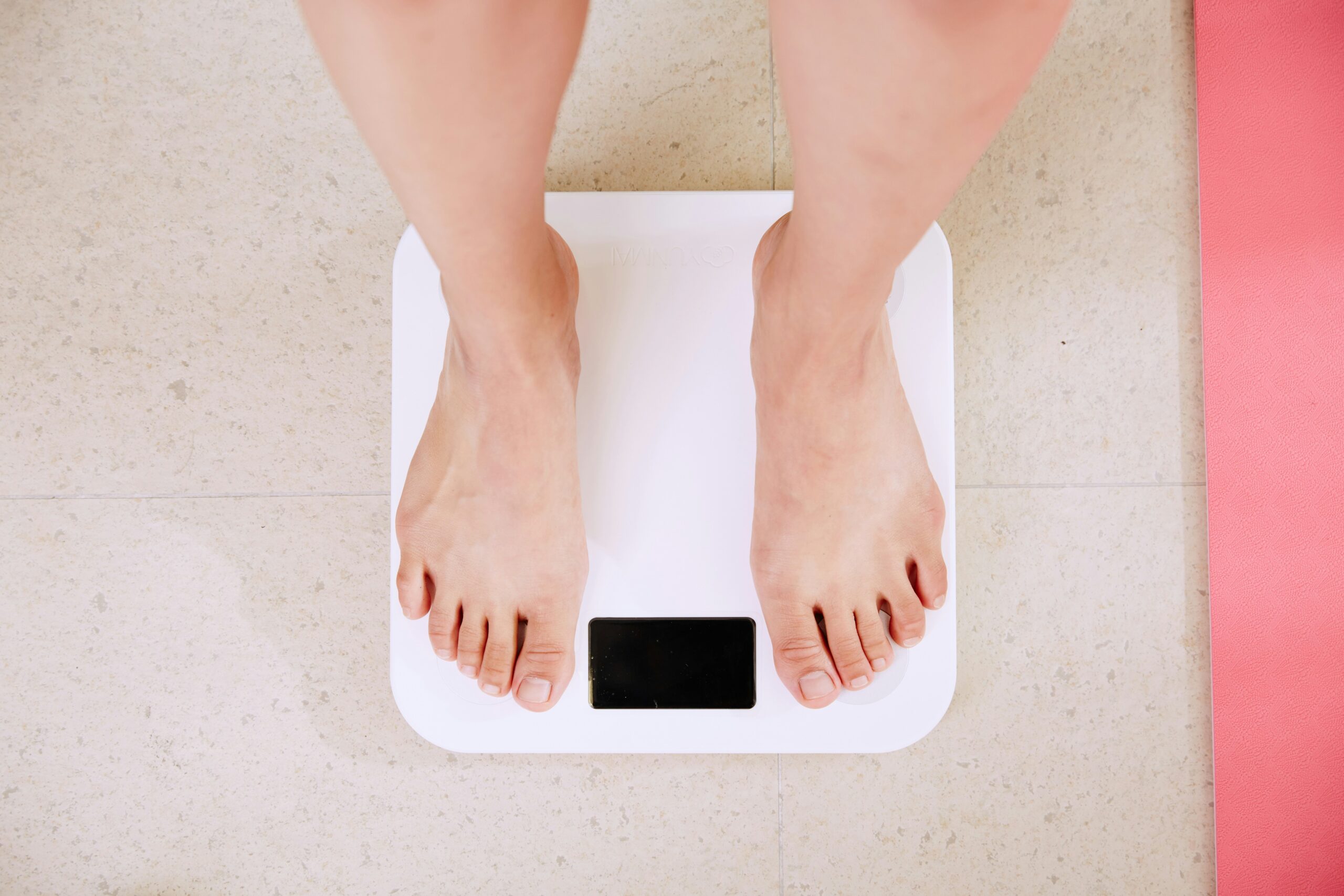What is the best way to lose weight? When it comes to losing weight, you need a clear and practical approach. Start by setting realistic goals that you can gradually achieve. Keeping a food diary can reveal patterns in your eating habits while prioritizing whole foods boosts your nutrition. Portion control and hydration play a significant role in managing hunger, too. However, there’s more to this journey than just diet and exercise. Understanding the full scope of what it takes to succeed can make all the difference. Curious about the next crucial steps?
1. Set Realistic Goals
Setting realistic goals is crucial for your weight loss journey, as it keeps you motivated and focused on achievable milestones.
Begin by determining how much weight you want to lose and set a specific timeline. Instead of aiming to lose 20 pounds monthly, target 1-2 pounds per week.
Break your overall goal into smaller, manageable steps, like improving your diet or increasing your physical activity. Celebrate these small victories to boost your confidence.
Make sure your goals are measurable; for example, you could aim to exercise three times a week.
2. Best Way To Kose Weight Keep a Food Diary
Keeping a food diary helps you become more aware of your eating habits and can reveal patterns that may hinder your weight loss efforts. You’ll see how often you indulge in snacks or larger portions by jotting down everything you eat. This awareness can motivate you to make healthier choices.
Make it a habit to note the time, place, and your feelings while eating. Are you munching out of boredom or stress? Understanding these triggers can help you address the underlying issues.
You don’t need to overcomplicate it—just a simple notebook or an app will do. Reviewing your entries weekly can spotlight areas for improvement, helping you stay accountable and focused on your weight loss journey.
You May Also Like Reading The 8 Best Steps To Healthy Living
3. Eat More Whole Foods
Incorporating more whole foods into your diet can significantly enhance your weight loss efforts and overall health. Whole foods, like fruits, vegetables, whole grains, nuts, and seeds, are packed with essential nutrients and fiber, making them satisfying and beneficial for your body.
By choosing these natural options, you’ll likely consume fewer calories and reduce the intake of processed foods high in sugar and unhealthy fats. Focus on fresh, unrefined ingredients that nourish your body and promote energy levels.
Experiment with new recipes and fill your plate with colorful produce to make meals exciting. As you prioritize whole foods, you’ll not only support weight loss but also cultivate healthier eating habits that last a lifetime.
4. Control Your Portions
While enjoying whole foods can be beneficial, managing your portion sizes is equally important for effective weight loss.
Start by using smaller plates and bowls to help control the amount of food you serve. It’s easy to overeat when you’re faced with large portions, so be mindful of your serving sizes.
Try measuring your food, especially high-calorie items, to get a clearer picture of how much you’re consuming.
Pay attention to hunger cues—eat when you’re hungry, but stop when you’re satisfied, not stuffed.
Avoid eating directly from the package, as it’s harder to track how much you eat.
5. Stay Hydrated
Staying hydrated not only supports your overall health but also plays a crucial role in weight loss by helping you feel fuller and reducing unnecessary snacking.
When you drink enough water, you’re less likely to mistake thirst for hunger, which can lead to overeating.
Aim for at least eight 8-ounce glasses of water daily, but listen to your body; it might need more, especially during hot weather or after exercise.
You can also incorporate hydrating foods like fruits and vegetables into your meals.
Keep a water bottle handy to remind yourself to sip throughout the day.
6. Incorporate Regular Exercise
Regular exercise complements your hydration efforts by boosting your metabolism and enhancing your weight loss journey. By incorporating regular workouts into your routine, you burn more calories and build muscle, which helps you achieve your goals faster.
Aim for at least 150 minutes of moderate aerobic activity each week, like brisk walking or cycling, combined with strength training on two or more days. Find activities you enjoy, whether it’s dancing, swimming, or hiking, to keep you motivated.
7. Get Enough Sleep
Getting enough sleep is crucial for your weight loss success, as it helps regulate hormones that control hunger and metabolism.
When you skimp on sleep, your body produces more ghrelin, the hunger hormone, and less leptin, which signals fullness. This imbalance can lead to increased cravings and overeating.
Aim for 7-9 hours of quality sleep each night to support your weight loss goals. Create a calming bedtime routine, limit screen time before bed, and keep your sleep environment comfortable and dark.
8. Manage Stress Levels
Managing stress levels plays a significant role in your weight loss journey, as high stress can lead to emotional eating and weight gain.
To keep your stress in check, incorporate relaxation techniques into your daily routine. You might try deep breathing exercises, meditation, or yoga to help calm your mind.
Regular physical activity also reduces stress hormones, so aim for at least 30 minutes of exercise most days.
Additionally, make time for hobbies you enjoy, as they can provide a much-needed distraction.
Don’t forget to prioritize self-care; whether it’s reading a book or taking a warm bath, these moments can help recharge your mental state.
9. Find a Support System
Finding a support system can make a significant difference in your weight loss journey, as encouragement from others helps you stay motivated and accountable.
Surround yourself with friends, family, or colleagues who understand your goals and can encourage. You might consider joining a local weight loss group or an online community where you can share experiences and challenges.
Having someone to celebrate your successes with or to lean on during tough times is invaluable. Don’t hesitate to reach out for support; it’s okay to ask for help.
10. Track Your Progress
Tracking your progress is essential for staying motivated and making adjustments to your weight loss plan as needed.
Start by keeping a journal or using an app to log your daily food intake, exercise routines, and weight changes. This way, you’ll clearly see what’s working and what isn’t.
Consider taking weekly photos to visually document your journey; sometimes, the scale doesn’t tell the whole story.
Celebrate small victories, like fitting into those jeans you thought were lost forever.
If you hit a plateau, don’t be discouraged—analyze your data and tweak your diet or exercise regimen.
Remember, consistency is key, and tracking helps you stay accountable.
Stay focused, and you’ll reach your goals.

Frequently Asked Questions
How Does Genetics Affect My Weight Loss Journey?
Genetics plays a significant role in your weight loss journey.
They influence your metabolism, fat distribution, and how your body responds to exercise.
Understanding this can help you tailor your approach for better results.
Can I Lose Weight Without Exercising?
Yes, you can lose weight without exercising.
Focus on your diet by reducing calorie intake, choosing healthier foods, and controlling portion sizes.
Small changes can lead to significant results, even without regular workouts.
What Role Do Hormones Play in Weight Loss?
Hormones significantly influence your weight loss journey. They regulate hunger, metabolism, and fat storage.
Imbalances can hinder progress, so understanding how hormones like insulin and cortisol affect your body is crucial for effective weight management.
Is Intermittent Fasting Effective for Everyone?
Intermittent fasting can be effective for many, but it’s not one-size-fits-all.
You might find it beneficial, while others may struggle with it.
It’s essential to listen to your body and choose what works best for you.
How Can I Overcome Weight Loss Plateaus?
To overcome weight loss plateaus, shake up your routine.
Try varying your workouts, adjusting your caloric intake, or incorporating strength training.
Staying hydrated and getting adequate sleep can also help reignite your progress.
Final Thought
In your weight loss journey, remember that consistency is key.
By setting realistic goals, keeping a food diary, and prioritizing whole foods, you’re laying a strong foundation for success.
Don’t forget to control your portions and stay hydrated, as these small changes can make a big difference.
Ensure you get enough sleep and manage stress, and lean on your support system for motivation.
Keep tracking your progress, and celebrate each milestone you achieve along the way!








